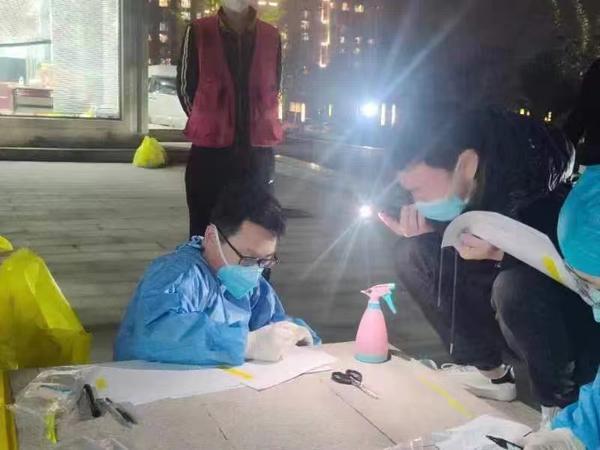Building a Solid Defensive Line: Uniting in English Essay for Pandemic Prevention and Health Protection
In the wake of the global pandemic that has wrought havoc across nations, the importance of effective prevention and control measures has become paramount. This essay delves into the intricacies of COVID-19 prevention during the pandemic era, emphasizing the collective responsibility of individuals, communities, and governments in safeguarding our health and well-being.
The Urgency of Pandemic Awareness
The outbreak of the novel coronavirus, SARS-CoV-2, in late 2019 ushered in a new era of global health crises. The virus, now known as COVID-19, swiftly spread across borders, disrupting economies, education systems, and daily life worldwide. In this context, understanding the significance of pandemic awareness is crucial. It is not just a matter of personal hygiene but a collective effort to mitigate the spread of the disease.
Individual Responsibility: Adopting Precautions
At the individual level, prevention starts with basic hygiene practices. Wearing face masks in public spaces, maintaining social distancing, and frequent hand washing with soap and water or using alcohol-based sanitizers are non-negotiable measures. Additionally, individuals should avoid crowded places, practice respiratory etiquette by covering coughs and sneezes, and monitor their health for any symptoms of COVID-19.
Moreover, staying informed is vital. Regularly checking reliable sources of information on the pandemic's latest developments and following the guidelines set by healthcare authorities helps in making informed decisions. The use of technology, such as telemedicine consultations for minor health concerns, reduces the risk of infection transmission in healthcare settings.
Community Involvement: Building Resilient Networks
Communities play a pivotal role in pandemic prevention. By fostering a culture of collective responsibility, neighborhoods can effectively contain the spread of the virus. This involves organizing community-led campaigns for awareness raising, distributing masks and hygiene kits to vulnerable groups, and ensuring that essential services like grocery stores remain open while adhering to safety protocols.
Community-based testing and tracing programs are also crucial. By quickly identifying and isolating infected individuals, these programs break the chain of transmission. Additionally, supporting mental health initiatives within communities is imperative, as the pandemic has taken a toll on people's emotional well-being.
Governmental Intervention: Enforcing Regulations and Providing Support
Governments hold the key to implementing comprehensive pandemic prevention strategies. They must enforce lockdowns when necessary, regulate public gatherings, and ensure that essential services continue while minimizing risks. The provision of free or subsidized testing facilities, contact tracing apps, and vaccination programs are vital components of a robust response plan.
Financial support for businesses and individuals affected by the pandemic is also crucial. Governments can provide stimulus packages, loan guarantees, and unemployment benefits to mitigate the economic fallout. Moreover, investing in public health infrastructure and research for future pandemics is a long-term strategy that should not be overlooked.
Digital Solutions: Leveraging Technology for Efficiency
The pandemic has accelerated the adoption of digital solutions in various aspects of life. From online education to telecommuting and e-commerce, technology has played a pivotal role in maintaining societal functioning while minimizing physical interactions. In the realm of pandemic prevention, digital tools like mobile apps for tracking symptoms and contact tracing have proven effective in containing outbreaks.
However, it is essential to address the digital divide that may exacerbate health disparities. Ensuring equitable access to technology and internet connectivity is crucial for vulnerable populations to participate fully in these digital solutions.
Conclusion: A Shared Responsibility for a Healthy Future
The COVID-19 pandemic underscores the importance of collective action in safeguarding public health. It is a reminder that no one is immune to the consequences of a global health crisis and that each individual's actions have far-reaching implications. As we navigate this unprecedented time, it is imperative to maintain a balance between individual liberties and public safety. By adhering to preventive measures, fostering community resilience, supporting government interventions, and embracing digital solutions judiciously, we can collectively build a safer future where we can all thrive amidst uncertainty.












 京ICP备11000001号
京ICP备11000001号
发表评论